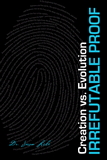Flood coal—A research trust report
Originally published in Creation 2, no 4 (October 1979): 4-8.
The concept of coal formed slowly in swamps is widespread and intimately associated with evolutionary geology.
Many professional coal geologists are prepared to concede that some coal deposits are better explained as flood deposits. The majority of those outside the coal industry, both scientists and nonscientists are still convinced that coal only forms slowly in swamps, and dismiss as cranks any who claim that coal can be formed in any other way. The Biblical picture of world history indicates that the first massive fossiliferous sediments were the product of the Flood in Noah’s day. Since coal is obviously a fossil deposit (plant materials) the Biblical picture implies that many coal deposits should have been flood formed. The observations which follow should be most useful for those whose claim that coal can be formed in flood deposits is ignored or belittled.
Concepts you will need:
- Autochthonous coal
- Autochthonous means coal which is formed in place, i.e. swamp coal.
- Allochthonous coal
- This coal formed by materials which have been washed into place.
- Detrital coal
- The same type of coal as allochthonous. Detritus is rubbish or broken plant materials.
- Bedding
- Most sediments are formed in layers. The layers which are seen are known as bedding.
- Coal dyke
- In order to explain coal which cuts across bedding layers the swamp theorists have suggested that sometimes a coal band can be squashed down through a fracture to cut across the beds instead of lying along the beds.
- Black coal
- Coal is a solid fossil fuel. It comes in many varieties named mainly according to their usage and color; e.g. brown coal—low grade fuel; black coal—medium grade fuel; anthracite—high grade fuel.
To gain most from this article read it as follows:
- Carefully scan the photographs in Figure 1.
- Correlate the photographs with the sketched outlines of the photographs in Figure 2. Identify the labeled parts on the photographs.
- Test your understanding: What answer does the evidence suggest for the question “How did this coal form?”
- Read the conclusions suggested about the origin of the coal shown and be critical. Are these conclusions justified?
Figure 1

1. Inclined coal deposit.

2. Close-up of 1.
Basic Data
Ipswich Coal Measures: Moorooka Formation; Coal type: black
Plant fossils include: Dicroidium, Ginkgoites and Xylopteris.
Conventional Geologic age: Mesozoic, based on fossils.
Origin: conventional interpretation—swamp formed coal.
Figure 2


Figure 3

3. Forked coal bands.

4. Micro coal bands in sandstone.
Conclusions
A detrital or flood origin for this coal is suggested by the following:
Observations
- Coal “dykes” (Figure 2) through which the bedding planes appear to continue unbroken.
- Micro coal bands in sandstone which occur along and across bedding planes. (Figure 3).
- Forked coal bands (Figure 3).
- Coal bands up to 5m in length and 5cm in width which meander along and across bedding planes with no evidence of dyking along fracture zones.
Additional Comments
Coal “Dykes”
1. Coal which has been pushed into a fracture is unlikely to possess bedding planes. Such bedding planes indicate the coal was laid with the sediment.
Coal in Sandstone
2. Sand is deposited from water which has a moderate speed, therefore this coal does not represent swamp deposit.
Forked Coal
3. Many of the coal forks had bedding parallel to the forks. This was unlikely to result if the coal was pushed into fractures. Some forks however showed evidence of being squashed along fractures.
Coal Bands
4. This is one of the most significant evidences that the coal is detrital. Coal formed by the slow swamp method should be parallel to the bedding even if the beds are distorted.
Recommended Resources

Answers in Genesis is an apologetics ministry, dedicated to helping Christians defend their faith and proclaim the good news of Jesus Christ.
- Customer Service 800.778.3390
- Available Monday–Friday | 9 AM–5 PM ET
- © 2026 Answers in Genesis


